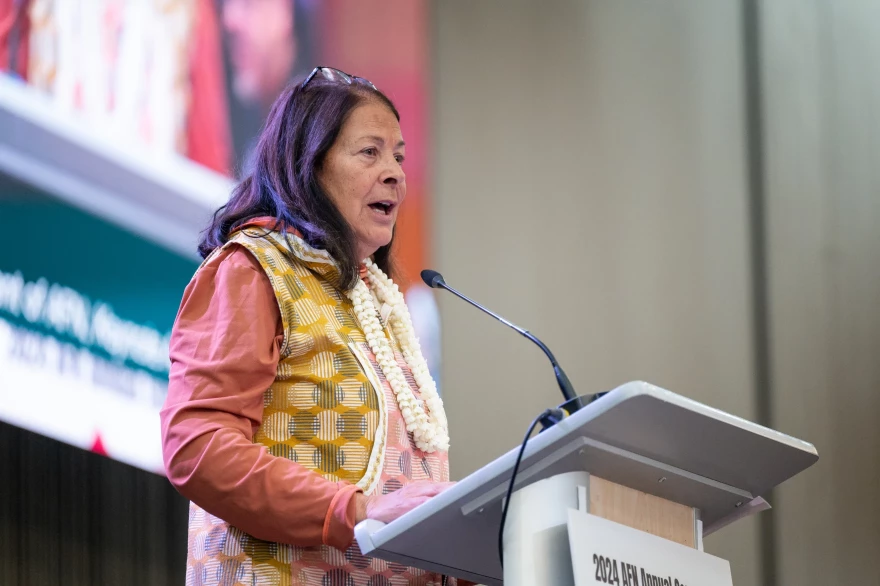The Trump administration wants to eliminate the Denali Commission, a federal agency that's been helping Alaska villages develop infrastructure for decades.
The administration says that the cut, which is in its budget proposal for the federal fiscal year that begins in October, is part of an effort to curtail what they call taxpayer waste and to reduce the federal role in local economic development.
Julie Kitka, the federal co-chair at the Denali Commission, said previous administrations have made similar proposals, and she is optimistic about the commission continuing its work.
"We take it seriously," Kitka said. "But we're very hopeful that we'll be identified and funded in the appropriations process."
The president's proposed budget outlines the administration's funding priorities. Congress will have the final say, expected in legislation in September or later.
Congress created the Denali Commission in 1998 to work in partnership with the federal government, state and tribes to address rural Alaska's needs. Since then, the agency has helped villages develop power generation facilities, transportation infrastructure and water and sewer systems. It has also provided job training and funded around 170 rural health clinics.
Over the years, the commission has provided more than $2 billion to rural communities.
"We have priority on small and distressed communities, environmentally threatened," Kitka said. "It is a rural infrastructure project."
Earlier this month, the commission received around $100 million to upgrade fuel tanks in ten Alaska villages.
Bill Stamm is the chief executive officer of the Alaska Village Electric Cooperative, which partnered with the commission on that and many other projects. Stamm said one benefit of the Denali Commission is that, once it has awarded funding, it doesn't go away at the end of a fiscal year.
"It can be used as match funding for other federal programs, which is often a big hindrance to smaller communities trying to get a project done," Stamm added. "It would be a great loss to rural Alaska if the commission went away."
The Trump administration also suggested eliminating five other regional commissions. In its budget proposal, the administration said states understand their local issues best and can address them more effectively. But the state of Alaska is already a partner and a co-chair of the Denali Commission. Just last week, Alaska Governor Mike Dunleavy spoke highly of the commission's fuel tank project.
Nils Andreassen is the executive director of the Alaska Municipal League, which is also represented on the commission. He said the agency works so well because it is embedded in local issues.
"It's kind of federal government at its best," Andreassen said. "It's close to the people, it's working with local and regional partners, and it's delivering results."
The House Appropriations Subcommittee on Energy and Water Development plans to consider funding the commission. Kitka said that's a good sign.
Kitka said she will continue working with the House and Senate to make the case for the commission. If the commission is cut, they plan to shut down for a year and transfer remaining responsibilities and funding to another agency.
Overall, Kitka said Alaska is growing in national and international importance, and she believes the administration will recognize the infrastructure needs of a state in such a strategic location.
"There is really important work that needs to be done in our state for the resilience of our communities and our people to deal with the challenges that are just growing," she said. "The warming of the Arctic and increased transit, the access for natural resources, trade and so forth."
Copyright 2025 KNBA


